Related Research Articles
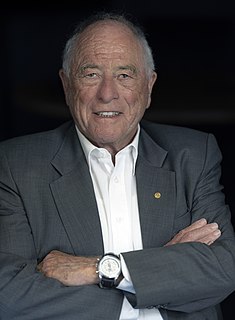
Kurt Wüthrich is a Swiss chemist/biophysicist and Nobel Chemistry laureate, known for developing nuclear magnetic resonance (NMR) methods for studying biological macromolecules.

Aaron Ciechanover is an Israeli biologist who won the Nobel Prize in Chemistry for characterizing the method that cells use to degrade and recycle proteins using ubiquitin.

The World Academy of Sciences (TWAS) is a merit-based science academy established for developing countries, uniting 1,000 scientists in some 70 countries. Its principal aim is to promote scientific capacity and excellence for sustainable development in developing countries. It was formerly known as the Third World Academy of Sciences. Its headquarters is located on the premises of the Abdus Salam International Centre for Theoretical Physics (ICTP) in Trieste, Italy.
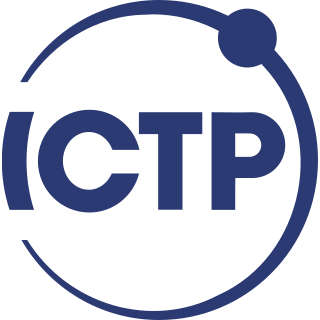
The Abdus Salam International Centre for Theoretical Physics (ICTP) is an international research institute for physical and mathematical sciences that operates under a tripartite agreement between the Italian Government, United Nations Educational, Scientific and Cultural Organization (UNESCO), and International Atomic Energy Agency (IAEA). It is located near the Miramare Park, about 10 kilometres from the city of Trieste, Italy. The centre was founded in 1964 by Pakistani Nobel Laureate Abdus Salam.
The UNESCO Science Prize is a biennial scientific prize awarded by the United Nations Educational, Scientific and Cultural Organization (UNESCO) to "a person or group of persons for an outstanding contribution they have made to the technological development of a developing member state or region through the application of scientific and technological research ."

The L'Oréal-UNESCO For Women in Science Awards aim to improve the position of women in science by recognizing outstanding women researchers who have contributed to scientific progress. The awards are a result of a partnership between the French cosmetics company L'Oréal and the United Nations Educational, Scientific and Cultural Organization (UNESCO) and carry a grant of $100,000 USD for each laureate. This award is also known as the L'Oréal-Helena Rubinstein Women in Science Awards.

Atta-ur-Rahman, is a Pakistani organic chemist is currently serving as Chairman of PM Task Force on Science and Technology. Prof. Atta-ur-Rahman FRS is heading the steering committee involved in the development of high quality foreign engineering universities in Pakistan one of which, the Pak Austrian University of Applied Science and Engineering has already begun operations in Haripur Hazara in collaboration with 3 Austrian and 5 Chinese Universities. He is also heading the Task Force established by the Ministry of Science and Technology on coronavirus that has carried out a number of tasks including clinical trials on different medications, manufacture of ventilators, expansion of covid testing facilities, monitoring the genetic variations regularly that are occurring in coronavirus as it mutates and clinical trials on herbal drugs against coronavirus. As a result of these efforts ventilator production has begun in Pakistan

Chad Alexander Mirkin is an American chemist. He is the George B. Rathmann professor of chemistry, professor of medicine, professor of materials science and engineering, professor of biomedical engineering, and professor of chemical and biological engineering, and director of the International Institute for Nanotechnology and Center for Nanofabrication and Molecular Self-Assembly at Northwestern University.

Cato T. Laurencin, M.D., Ph.D., is an American engineer, physician, scientist, innovator and a University Professor of the University of Connecticut.
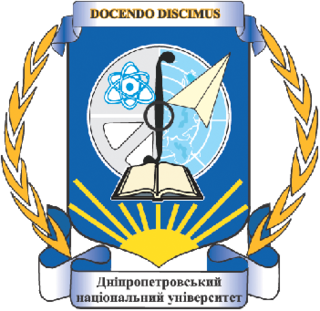
Oles Honchar Dnipro National University is an establishment of higher education in Ukraine. It was founded in 1918. The first four faculties were history and linguistics, law, medicine and physics and mathematics.
The United Nations Educational, Scientific and Cultural Organization (UNESCO) is a specialised agency of the United Nations (UN) aimed at promoting world peace and security through international cooperation in education, arts, sciences, and culture. It has 193 member states and 11 associate members, as well as partners in the non-governmental, intergovernmental, and private sector. Headquartered at the World Heritage Centre in Paris, France, UNESCO has 53 regional field offices and 199 national commissions that facilitate its global mandate.

Christofer "Chris" Toumazou, FRS, FREng, FMedSci, FIET, FIEEE, FCGI, FRSM, CEng is a British Cypriot electronic engineer.
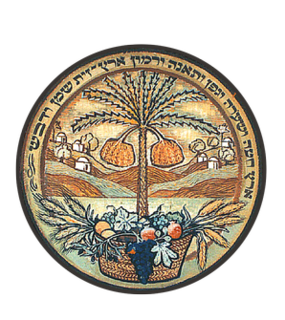
The Agricultural Research Organization, Volcani Center, previously known as the Agricultural Research Station of the Jewish Agency for Palestine, is an Israeli agricultural research center. It serves as the research arm of the Ministry of Agriculture and Rural Development of the State of Israel and provides research opportunities for local and international scientists at post-graduate levels, as well as educational opportunities for Israeli and international youths, farmers and scientists. The organization supports Israeli agriculture research, focusing on plant sciences, animal sciences, plant protection, soil and environmental sciences, food sciences, and agricultural engineering. The organization was founded in 1921 in Ben Shemen, Israel, by Yitzhak Elazari Volcani, for whom it is named.
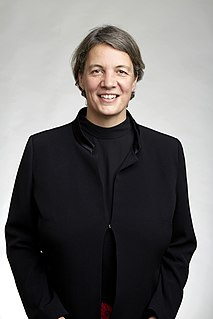
Michelle Yvonne Simmons, is a Scientia Professor of Quantum Physics in the Faculty of Science at the University of New South Wales and has twice been an Australian Research Council Federation Fellow and is an Australian Research Council Laureate Fellow. She is the Director of the Australian Research Council Centre of Excellence for Quantum Computation & Communication Technology and is recognised internationally as the creator of the field of atomic electronics. She was the inaugural editor-in-chief of npj Quantum Information, an academic journal publishing articles in the emerging field of quantum information science. On 25 January 2018, Simmons was named as the 2018 Australian of the Year for her work and dedication to quantum information science. On 10 June 2019, Simmons was appointed an Officer of the Order of Australia (AO) in the 2019 Queen's Birthday Honours in recognition of her "distinguished service to science education as a leader in quantum and atomic electronics and as a role model."

Quarraisha Abdool Karim, is an infectious diseases epidemiologist and co-founder and Associate Scientific Director of CAPRISA. She is Professor in Clinical Epidemiology, Columbia University, New York and Pro-Vice Chancellor for African Health, University of KwaZulu-Natal, South Africa.
Balram Bhargava is an Indian science administrator. He has been appointed for a three-year tenure as the Director-General at the Indian Council of Medical Research, New Delhi and Secretary, Department of Health Research a division under Ministry of Health and Family Welfare, Government of India.
The UNESCO King Hamad Bin Isa Al-Khalifa Prize for the Use of Information and Communication Technologies (ICT) in Education is a UNESCO prize which rewards projects and programmes of individuals, institutions, other entities or non-governmental organizations for the creative use of information and communication technologies to enhance learning, teaching and overall education performance.
Felix Dapare Dakora, is a Ghanaian plant biologist investigating biological nitrogen fixation at the Tshwane University of Technology in South Africa. He currently serves as President of The African Academy of Sciences for the 2017–2020 term. Dakora was awarded the UNESCO-Equatorial Guinea International Prize for Research in the Life Sciences and the African Union Kwame Nkrumah Scientific Award. Dakora is a Fellow of the Academy of Science of South Africa.

Li Lanjuan, also romanized as Lan-Juan Li, is a Chinese epidemiologist and hepatologist. She is a professor at Zhejiang University School of Medicine, an academician of the Chinese Academy of Engineering, and serves as the director of the State Key Laboratory for Diagnosis and Treatment of Infectious Diseases. She developed Li-NBAL, an artificial liver support system that is used to sustain the lives of people suffering from acute liver failure, and won multiple national awards for her roles in combatting the SARS, H1N1, and H7N9 epidemics.
André Bationo is a soil scientist from Burkina Faso. In 2014 he won the UNESCO-Equatorial Guinea International Prize for Research in the Life Sciences for his research into soil fertility management. In 2020 he was the joint winner of the Africa Food Prize, with Catherine Nakalembe.
References
- ↑ UNESCO-Equatorial Guinea International Prize for Research in the Life Sciences on Unesco website
- ↑ Laureates of the UNESCO-Equatorial Guinea International Prize for Research in the Life Sciences
- ↑ "Laureates | United Nations Educational, Scientific and Cultural Organization". www.unesco.org. Retrieved 2020-12-30.
- ↑ Announcement of the laureates of UNESCO-Equatorial Guinea International Prize for Research in the Life Sciences
- ↑ https://www.unesco.org/en/articles/innovation-genetic-technologies-rewarded-unesco-equatorial-guinea-international-prize